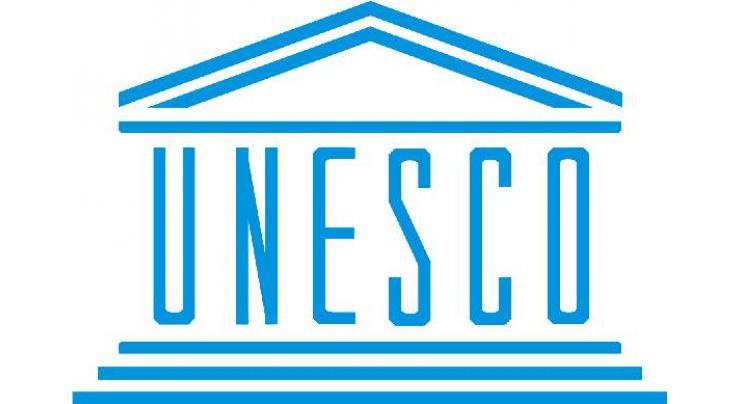
- Home
- Pakistan
- News
- Quality, uniform education must to reduce risk of violence, achieve SDGs by 2030: UNESCO
Quality, Uniform Education Must To Reduce Risk Of Violence, Achieve SDGs By 2030: UNESCO
Umer Jamshaid Published January 04, 2017 | 04:45 PM

PESHAWAR, Jan 4 (UrduPoint / Pakistan Point News - 04th Jan, 2017 ) : The new Global Education Monitoring (GEM) report by UNESCO launched here on Wednesday called upon the South Asian governments to take inequalities in education seriously and take great strides and do major transformation in the sector to achieve Sustainable Development Goals (SDGs) by 2030.
The reported launched by Idara-e-Taleem-o-Aagahi (ITA) highlighting the urgency of accessible quality education said that inequality in education, interacting with wider disparities, heightens the risk of violence and conflict.
It said that a recent study drawing on data from 100 countries over 50 years found that countries with higher levels of inequality in schooling were much more likely to experience conflict. The report revealed that education needs a major transformation to meet the current challenges facing humanity and the planet, adding that on current trends, universal Primary education in South Asian countries like Pakistan will be achieved in 2051, universal lower secondary completion in 2062; and universal upper secondary completion in 2087.
The report, Education for People and Planet, shows the need for education systems to step up attention to environmental concerns. While in the majority of countries, education is the best indicator of climate change awareness it said and reported that half of countries curricula worldwide do not explicitly mention climate change in their content.
UNESCO Director-General, Irina Bokova said in the report that a fundamental change is needed in the way we think about education's role in global development, because it has a catalytic impact on the well-being of individuals and the future of our planet.
He added that now, more than ever, education has a responsibility to be in gear with 21st century challenges and aspirations, and foster the right types of values and skills that will lead to sustainable and inclusive growth, and peaceful living together.
Speaking on the occasion CEO ITA Baela Raza Jamil emphasized that there is an urgent need for education systems to impart higher skills aligned with the needs of growing economies, where job skill sets are fast changing, many being automated.
Baela Raza said that on current trends, by 2020, there will be 40 million too few workers with tertiary education relative to demand. Referring to the report, he said it shows this change is vital: achieving universal upper secondary education by 2030 in low income countries would lift 60 million out of poverty by 2050.
Baela Raza Jamil also noted that a recent study drawing on data from 100 countries over 50 years found that countries with higher levels of inequality in schooling were much more likely to experience conflict.
Many countries in the region still have extreme disparity in education, Baela said adding through the launch of this report, ITA calls on governments to start taking inequalities in education seriously, tracking them by collecting information directly from families.
This launch of the report was attended by stakeholders including CSOs, NGOs, youth, teachers and government officials in Peshawar. The event included a discussion on how education can be improved and the great strides taken by the KP government.
Secretary Department of Elementary and Secondary Education KP Dr. Shahzad Khan Bangash, Director Department of Elementary and Secondary Education KP Muhammad Rafiq Khattak highlighted the role of KP government towards capacity building of education.
Dr. Bangash said currently efforts are at the take off stage for restructuring of education sector in the province. With representatives from government officials, educationists and civil society representatives, the conversation centered around the findings of the GEM Report and its projection with regard to the current education system in KP.
The participants indicated that there needed to be changes in curriculum and pedagogical practices, which have already been instituted by the department, but has yet to see implementation on a large scale. Nonetheless, educationists seemed in hopeful in the light of the upward trend of enrollment in government schools in KP.
Related Topics
Recent Stories

Mired in crisis, Boeing reports another loss

Session Awarding Ceremony 2024 held at Cadet College Muzaffarabad

Austrian ski great Hirscher to make comeback under Dutch flag

Pakistan, Japan agrees to convene 'Economic Policy Dialogue'

FM Dar conveys deepest sympathy on torrential rains devastation in UAE

Spain PM Sanchez says weighing resignation after wife's graft probe

Tennis: ATP/WTA Madrid Open results - 1st update

Long-lost Klimt portrait auctioned off for 30 mn euros

Osaka seals first win on clay since 2022 in Madrid

Earthquake jolts Karachi

Sindh minister orders operation after attack on police in Ghotki

TikTok to fight US ban law in courts
More Stories From Pakistan
-
Pakistan, UK discuss collaboration in education sector
6 hours ago -
PMD forecast rain-windstorm/thunderstorm for various parts of country
7 hours ago -

Session Awarding Ceremony 2024 held at Cadet College Muzaffarabad
7 hours ago -

FM Dar conveys deepest sympathy on torrential rains devastation in UAE
7 hours ago -

Earthquake jolts Karachi
8 hours ago -

Sindh minister orders operation after attack on police in Ghotki
8 hours ago
-

Police book youngster for abusing student for one year
8 hours ago -

Police arrest 23 suspects, recover stolen money, phones
7 hours ago -

Colorful cultural festival concludes at NUML
7 hours ago -

Immunization awareness week kicks off in Balochistan
7 hours ago -

Ministers visit Aziz Bhatti Shaheed Hospital following roof collapse incident
8 hours ago -

IHC serves notices in petition against 'roti' price fixation
8 hours ago









